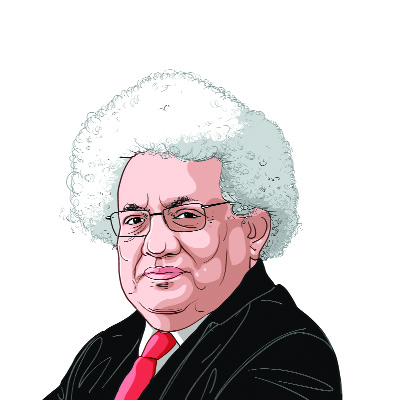Opinion The politics of accidental death
The sad and sudden death of YSR Reddy is not the first which will have a huge political impact....
The sad and sudden death of YSR Reddy is not the first which will have a huge political impact. Indian politics has indeed been shaped by such accidents. If only anyone had guessed that Jinnah had only a year to live beyond August 1947,the negotiations for the independence of British India would have taken a different turn. Then the death of Mahatma Gandhi in January 1948,tragic as it was,released the Congress from a person who would have given them a guilty conscience every day of their lives. It also gave the Congress a unifying symbol which they could offer to the young nation.
Sardar Patels death in December 1950 left Nehru as the sole Congress leader. He controlled the party and the government. He had no challengers and this was a mixed blessing. The top heavy development strategy and the gullible foreign policy regarding China would not have happened if he had any colleague who would have matched him in status. Then of course if anyone could have changed the direction of economic strategy,it was Lal Bahadur Shastri. He wanted the aam aadmi to benefit from planning fifty years before Congress rediscovered the idea. Yet he died before he could get into his stride. Had Shastri lived and been PM for two terms,there would never have been dynasty politics in India. Shastri was a strong leader when it came to the 1965 war with Pakistan and a truce-maker when the question of Hindi as a national language exploded. He was a change maker but he has been erased from the Congress annals completely. It is fitting that YSRs body was kept for the public to pay their respects at Shastri stadium in Hyderabad.
There was also the sudden death of Indira Gandhi in 1984 and the death previously of Sanjay Gandhi in 1981,which brought Rajiv Gandhi with his practical,non-ideological approach to power. Had Rajiv lived a few years longer and become Prime Minister again,the average age of Indian political leadership would have been twenty years less and in line with international trends. But alas,again that was not to be. The unravelling of the Indian political party structure may not have happened the way it did or at least not lasted as long as it has done.
Elsewhere in South Asia,Jinnahs death in September 1948 was followed soon by the assassination of Liaqat Ali Khan. Zulfiqar Ali Bhutto was hanged and his killer Zia-ul-Haq died in a plane crash which was a terrorist attack. Benazirs sudden death crippled the return of democracy in Pakistan with Asif Ali Zardari as the unlikely victor in the Presidential elections. Across the other end,Mujibur Rahman was murdered within four years of the creation of Bangladesh. Bangladesh had to go through a long period of darkness before the idealism which was present at its creation could have a chance.
The American story is even more dramatic. Abraham Lincoln was murdered soon after he had won the American civil war and the emancipation of the Black community would not have taken the sad path it took if he had completed his term and been alive a few years longer. John Kennedy was murdered in November 1963 a thousand days into his Presidency and that changed the course of American history. The assassination of his brother Robert during the primaries in 1968 was another blow.
The Americans have a tradition of political violence but Britain is innocent of such assassinations,apart from the regicide of Charles I. Only one Prime Minister has been murdered and that was Spencer Perceval in 1806. His assassin was a bankrupt businessman whom Perceval had failed to grant a subsidy. A much more significant,though lesser known,episode was the sudden death of John Smith MP at a young age of 54 in 1994. John Smith was the Leader of the Labour Party and he was steering the party to its success without abandoning its old values. His sudden death gave Tony Blair the chance to redesign the Labour Party in a much more centrist,if not right of centre,orientation.
Accidental death can have long-lasting effects. What will YSRs do to Indian politics?





